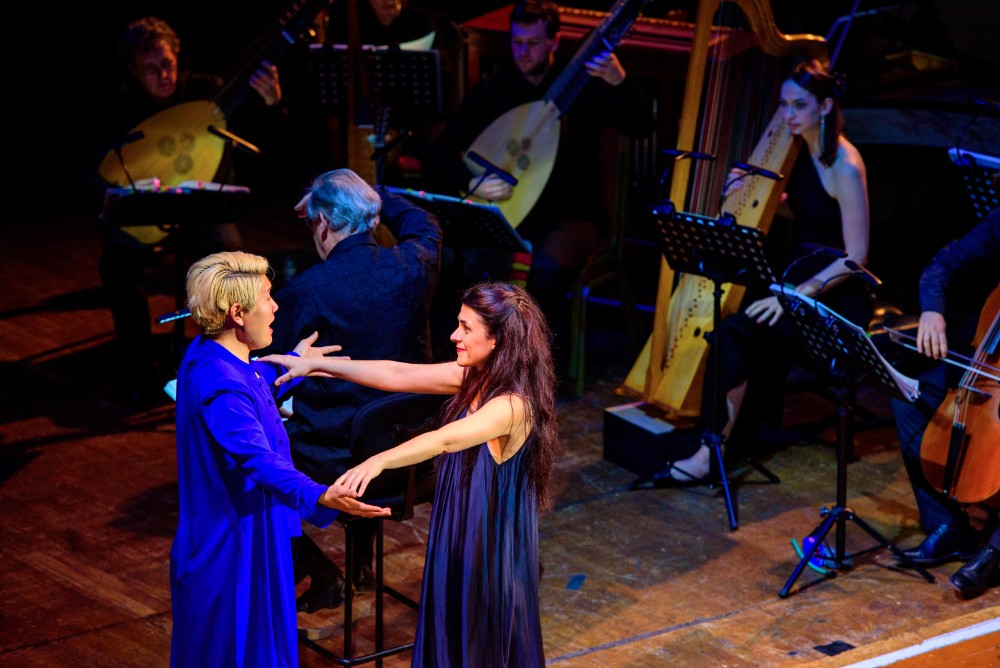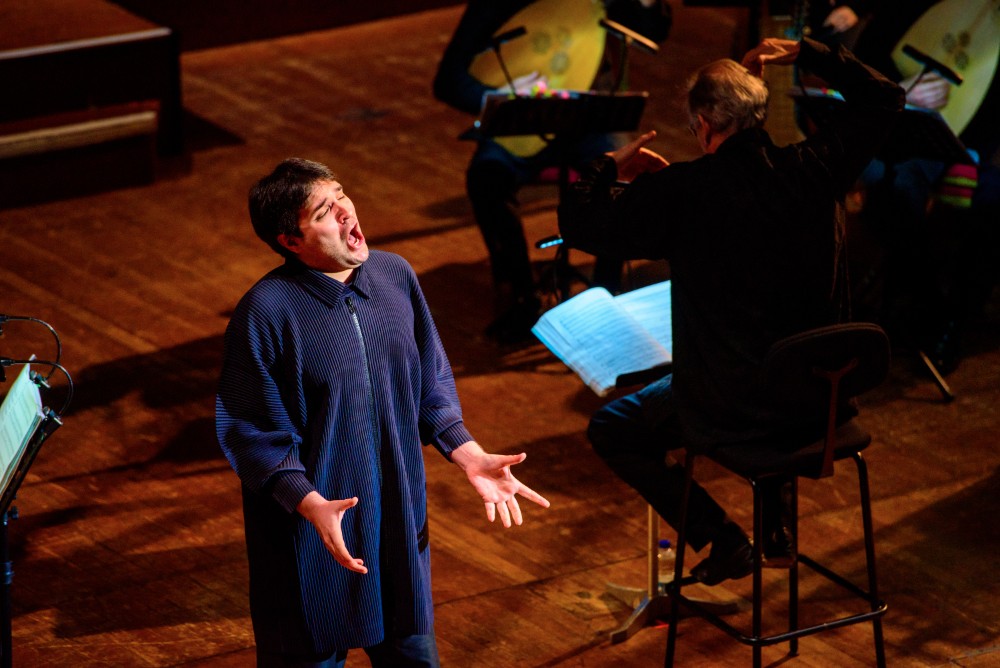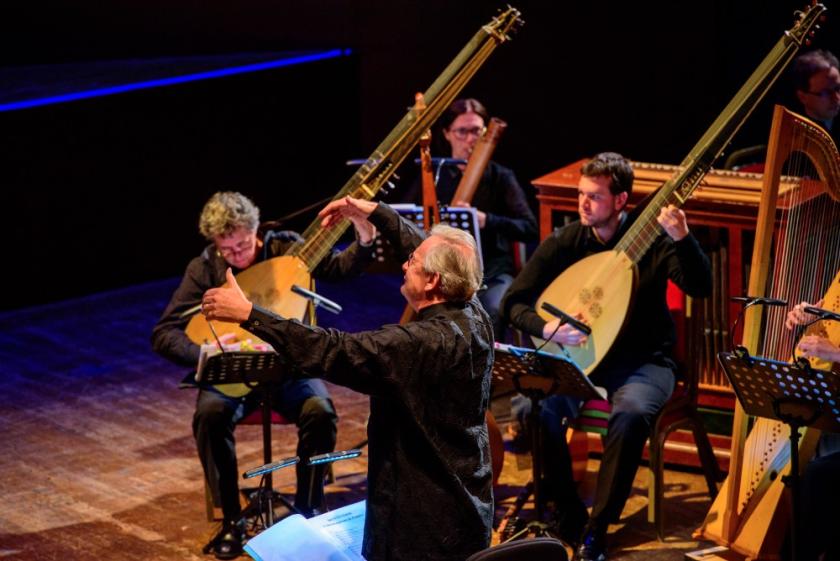Whatever musicologists may tell us about the patchy authenticity of Monteverdi’s last two operas, they unquestionably make a pair. Il ritorno di Ulisse is all about fidelity and ends with a love duet between the reunited husband and wife. L’Incoronazione di Poppea is almost entirely dedicated to infidelity and ends with a disturbingly beautiful love duet between the adulterous couple, Nero and Poppea, after he has exiled his wife, Ottavia, and ordered his moralising tutor, Seneca, to kill himself, among other equally vicious, if slightly less murderous, diktats.
Happily Monteverdi’s only other surviving opera, L’Orfeo, which John Eliot Gardiner has chosen to conduct last in the cycle (on May 28) though it was by a long way the first to be composed, reinstates fidelity. It will be a great relief.
Poppea, for me, is a problem piece. It spends the best part of three hours organising the satisfaction of Nero and his flibbertigibbet mistress over the dead bodies – literally or otherwise – of anyone with a modicum of virtue who gets in their way. Then it spends another 20 minutes or so congratulating them.

It’s an opera with beautiful moments but mauvais quarts d’heure. It lacks development: the lovers are much the same at the end as they were at the beginning (ie. horrible), and the music, too, lacks growth, and is generally less varied, in pace and character, than that of Ulisse. One listens out for irony, but in vain – the mockery, such as it is, is directed against virtue; and in fact almost the only thing to be said in the lovers’ favour is that they are unremittingly honest. But a lack of hypocrisy is poor consolation for petty, unrestrained nastiness.
Kangmin Justin Kim and Hana Blažíková (pictured above) struggled to make these figures worth the spotlight Monteverdi shines on them. Blažíková overplayed the manipulative siren like fury, weaving her body and waving her arms like a demented octopus, and her singing was only so-so, fluent but short of warmth and, especially in the final duet, inclined to drift off pitch. Kim was steadier (except, perhaps by osmosis, in the duet); an excellent, stylish countertenor, not flattered, though, by a blond wig (I suppose it was) and a long blue frock coat, and not fully equal to the repulsive persona required by the scenario.
By far the best singing came from Marianna Pizzolato as Ottavia, and the bass Gianluca Buratto as poor Seneca, a character between nobility and pomposity, who speaks in platitudes but behaves throughout with dignity, almost alone in the opera. Carlo Vistoli was adequate, or a little more, as Poppea’s doomed lover Ottone (pictured below), but Anna Dennis brought the same flair to Drusilla as to the maid Melanto in Ulisse, a less pragmatic character but with something of the same vivacity.

Silvia Frigato was a bright-voiced Amore; but this allegorical role is hard to pitch acceptably, triumphalism being tiresome in a cupid in black tights, and her overacting was unhelpful. Lucile Richardof was a dark-voiced Arnalta, Poppea’s nurse and an image of parvenu ruthlessness in the making. Penelope, where art thou now?
As before, the playing by the English Baroque Soloists and ensemble singing by members of the Monteverdi Choir under John Eliot Gardiner was without serious flaw. It’s a treat in these semi-staged performances to be able to watch the orchestra, to see the violins and recorders and cornets pop to their feet like so many jack-in-the-boxes and to study the assorted lutes and chitarrones as they growl and jangle their way through Monteverdi’s unspecified continuo part. Gardiner conjured up a rich and often exciting sonority from the bald essentials of the manuscripts, and Elsa Rooke again choreographed matters effectively up and down the platform steps and in and around the players and conductor. It was a long evening offering plenty to enjoy, except, for this grouser, the work itself.














Add comment